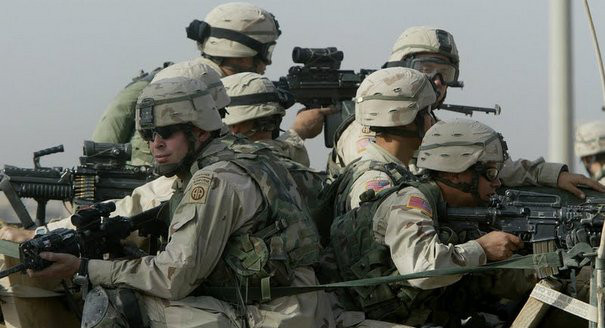The rationale is very clear, and has been pointed out many times: in relative terms, both Europe and America, the main powers of the “global West,” are becoming weaker in the new multipolar world. At the same time, this new world has an increased need for the kind of stability services that the United States, as the main guardian of a liberal world order, has provided to the global commons over the last two generations.
For the resource-poor, trade-dependent nations of Europe, it is of existential importance that the liberal world order survives. Europe needs an international system built on open markets, free trade routes, and at least a minimum set of accepted standards for state behavior.
Outside the global West, few nations seem to feel a strong sense of responsibility for protecting the liberal world order. Reigning in rogues states, policing sea lanes, fighting piracy and international terrorism, issuing security guarantees for nations under threat, providing the lion’s share of development aid, promoting democracy and human rights, pushing conflict parties toward diplomatic solutions—all this and much more is still chiefly done by the countries of the West. It is often done in an imperfect way, to be sure, and the West has made grave mistakes that have undermined its credibility as a force for good. But, by and large, it has been to the benefit of everybody else that the West has assumed responsibility for these things.
The precondition for being able to provide these services is democracy at home, a strong economy, and a military with the ability to project force globally. This is often overlooked by Europeans, who prefer to think that peaceful interaction between nations can be organized without much of a military component. Europeans—because they are inward-looking and strategically lazy—have systematically downgraded their military capabilities over the last twenty years. This has reached a point where now even relatively minor operations, such as those in Libya or Mali, push European forces to their limits.
Europeans have tried to counter this trend by devising various smart schemes, such as an EU Common Security and Defense Policy to streamline policy among 27 governments, or pooling and sharing (EU) and smart defense (NATO) to make better use of resources. None of this has stopped the decline of Europe’s military. The United States, which still plays the role of security provider for Europe, has repeatedly made clear that this can’t go on for much longer.
So what can Europeans do? Two things come to mind, one difficult, one relatively easy. The difficult thing will be to finally start spending more on defense capabilities. There is simply no way around it. Pooling and sharing, even in the best of circumstances, will never significantly increase capabilities. Even in times of austerity, spending more is cheaper in the long run than the price Europe will be forced to pay if it is sidelined in global affairs.
The other task for Europeans is to ensure that the two organizations they can call on for security policy, NATO and the EU, remain flexible enough to accommodate the coalitions of the willing that will become the main instrument for European military activity.
And here is what Europe should not do: it should not worry about a lack of common interests. Those interests, as the examples of Libya and Mali show, become clear very quickly once a serious problem arises and the need for action becomes compelling. Also, Europe should not be afraid that coalitions of the willing will undermine EU or NATO cohesion. They won’t, as long as they are handled flexibly and generously. It is in any case unlikely that all members of NATO or the EU will embark on a mission together again. Rather, select member states will come together on a case-by-case basis, using the infrastructure provided by all of them.
A Europe that spends more on usable military capabilities and allows itself some flexibility in applying its cherished multilateral frameworks is exactly the partner America will need in the 21st century. And that is precisely what Europe should aspire to, even outside its partnership with the United States. This would not only make Europe a more useful partner, but also a more independent one, with more leverage vis-à-vis its American ally. And it would have more muscle to back up its famous soft power.
Europe needs to understand that the transatlantic link constitutes the foundation of its freedom, and that it needs to invest hard currency in the form of defense spending to keep this link intact. This realization, as painful as it will be, is the key to good transatlantic relations, a secure future, and strategic European influence around the globe.











